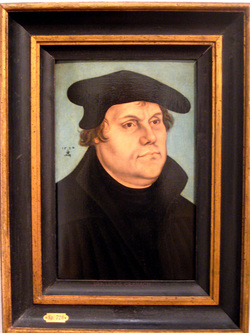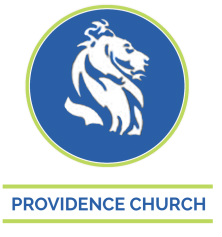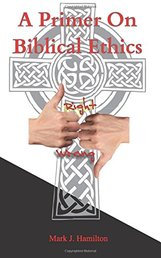
After a few months they moved to Mansfield, a city with a beautiful countryside. Father Hans was the oldest son of a hardworking peasant family in Mohra in the Thuringian forest but the youngest sons inherited the property. He worked as a smelter for the Count. He was a hard demanding man. Luther’s mother was a musician. They were very superstitious, but went church every week and believed in an angry vengeful God, They were not encouraged to read the LATIN Bible.
Luther went to church and was exposed to this harsh god. He found it difficult to escape the watchful eye of God. Most of the people were farmers who believed in too many holy days and were frightened to disobey the church which owned most of the property. Luther loved the music he found in the church.
Luther started school there at age 5 when most were at least 7 in one large classroom of boys. He was pushed by his dad. School was 6 days a wk. year round with harsh Latin lessons. He suffered beatings at school and at home.
Louisa Cotta took to him and moved in with her sister Ursula and in their home he learned to appreciate music, painting, and tapestry. He became familiar with the Franciscans nearby in Wartburg Castle. During this period it became obvious that he was an excellent student.
After this he journeyed to Erfurt, a city on the crossroads that had 30,000 people, 23 churches and 20 cloisters and was called “little Rome.” . He went there to study law which greatly pleased his father. It was a life of strict discipline in bed at 8 and up 4, school at 6 with lots of debate and grammar, logic, and rhetoric; he also learned the lute. As bright as he was, he was an undistinguished student and rated 30 of 57 at graduation. But Luther had begun to read the Bible for himself but he was becoming more aware of his own sinfulness.
While traveling he had a near fatal accident with a sword defending himself on his 3 day journey home to Mansfield. Two of his friends died which only made him more frightened.
In 1505 now 22 years old with a Master’s degree, Luther was visiting at home and was then travelling back when a violent storm hit. Luther thought it was the end of his life and cried out, “Saint Anne, save me …and I will become a monk.” Needless to say he survived but was now “called by heavenly terrors”.
Luther’s friends thought he was nuts, but there was no alternative; he was to become an Augustinian monk. Now that he had finally gained his father’s respect, he was heading off to the monastery to be admitted as a novice. The head of the order was Van Staupitz. Luther was much more educated than any of the other monks so in the monastery he was a marked man given the most menial assignments. Though his father remained bitter, he softened a bit when two younger brothers died of Plague and his father feared of further judgment.
While in the monastery living in a small cell Luther practiced strict behaviors, offered many prayers, and continued studies on his own. Emotionally he was filled with despair and even whipped himself. He became terrified of God. He fasted but thought he could never become hungry enough or suffer enough to please God. Van Staupitz visited him and he confessed this to him. He tells Luther of the love of God; Luther’s response was I do not love Him, I hate Him. After a year became a 23 year old priest ordained to lead mass. He emerges, however, as a great student of Scripture and works with others in the Augustinian monasteries.
In 1510 Luther is sent 850 miles on a pilgrimage to Rome while Pope Julius II reigns. But Rome was in horrible shape with Cardinals and their mistresses out in the open. It was contemporary to the time of Raphael and Michaelangelo and shortly after Leonardo‘s work. Luther is disgusted by the relics. He writes, “If there’s a hell then Rome stands on it.” He continued to hate God and banter with Von Staupitz.
In 1512 he received his doctorate in theology and is carried through the streets by his fellow students. His restlessness could still not be satisfied so when Duke Fredrick of Saxony starts a new university at Wittenberg, 70 miles ne of Erfurt, in a town of 2000 people, Luther is sent there to teach the Bible. In Wittenberg there are 1,800 relics there and Von Staupitz greets him. Luther is in turmoil but obedient. The Dean of Wittenberg was Karlstadt. The Plague of 1516 hits hard in Wittenberg.
In 1513 a new pope, Leo X. had been crowned and he loved the arts. Concurrent to this Albert of Brandenberg bought position of archbishop of Germany at age 23. He had to borrow for this and was now in debt. Also Pope Leo granted indulgences be sold in Germany for the purpose of building St. Peter’s Cathedral so a plan was developed to collect money through indulgences by Albert whereby -- ½ would go to to Albert and ½ to St. Peter’s. The selling of Indulgences is the greatest religious con of all time and puts to shame the activities of the televangelists of today. One could actually donate money to the church to get out of purgatory free or to get a deceased relative out of purgatory. It was a means of penance.
While at Wittenberg Luther continued to study and teach Scripture. Eventually there is a break through as he is studying through Romans. He realizes that, “The righteous shall live by faith.” It brings him new life. It is not by righteous deeds but by faith that one attains God’s favor. Luther became less dark and became on fire for God. Soon thereafter he visited the 11 Augustinian monasteries and preached this discovery to them.
At this time one had to be sorry, confess their sins to a priest, be formally forgiven by priest, and then do good works as acts of penance to achieve the Church’s blessing. John Tetzel and promotion of selling indulgences fit perfectly into this model. Luther had to combat this as the congregants began to ask him pastoral questions. As a result on October 31, 1517 he posted his 95 Theses on the public door to Cathedral Church in Wittenberg. These involved attacks on the pope, indulgences, Tetzel, etc.
These writings were quickly distributed throughout Germany as were numerous sermons by Luther over the next couple of years. In 1518 he was denounced as a heretic and called to appear before the Cardinal in Augsburg and recant; Luther said he would if convinced by Scripture. He then escaped on horse at night and continued his attacks.
The next year the pope needed Fredrick’s loyalty and Martin was free to preach and write. He even debated the renowned Johann Eck in Leipzig. Here he declared the Bible as the ultimate authority not popes and councils. They tried to link him to John Hus who had been declared a heretic and was executed in Prague a century earlier.
In 1520 a Papal Bull is declared against Luther. He denounced it an publicly burned it in Wittenberg just down the street from his home and where he taught. In April1521 Luther is tried at the Diet of Worms. Here he makes his great “Here I Stand” speech where he is excommunicated and declared an outlaw. Did you write these books? Do you recant, he is asked? He knows that there could be great penalties if convicted of heresy.
“These are all mine, but they are not all the same kind. One kind deals with simple Christian truth about faith and life. Even my enemies do not object to these. Another kind complains about the false teachings and evil doing of Rome. They show how the pope and his followers are destroying Germany…” That was a claim that clearly met with support from the crowd. The emperor broke to object but Luther could not be stopped. “No I cannot deny these books because if I did I would be opening the door to even worse evils for my country.”
“In these I have attracted persons whom I believe to be the enemies of the Gospel. I cannot take back what I have said in defending God’s truth. If I did then sin and evil would increase in power. “
Do you recant?
Unless I am shown by the testimony of Scripture and by evidential reasoning---for I do not put faith in pope or councils alone, because it is established that they have often erred and contradicted themselves—my conscience is captive to the Word of God. I cannot and will not recant anything for it is neither safe nor right to act against conscience. Here I stand God help me. Amen.
Luther is condemned as an outlaw. But when he leaves he is taken to Wartberg castle in protective custody by his friends. During his 10 months there he translated the New Testament into the German language. Many others were excommunicated including Karlstadt. Luther eventually married Katie Bora and had 3 sons and 3 daughters and died in 1546.
If you have the chance to read Luther read The Bondage of the Will, Table Talk, Commentary on Galatians, or On Liberty. Look up the 95 Theses on the internet. I often have students read the essay letter to the pope On Liberty.




 RSS Feed
RSS Feed
